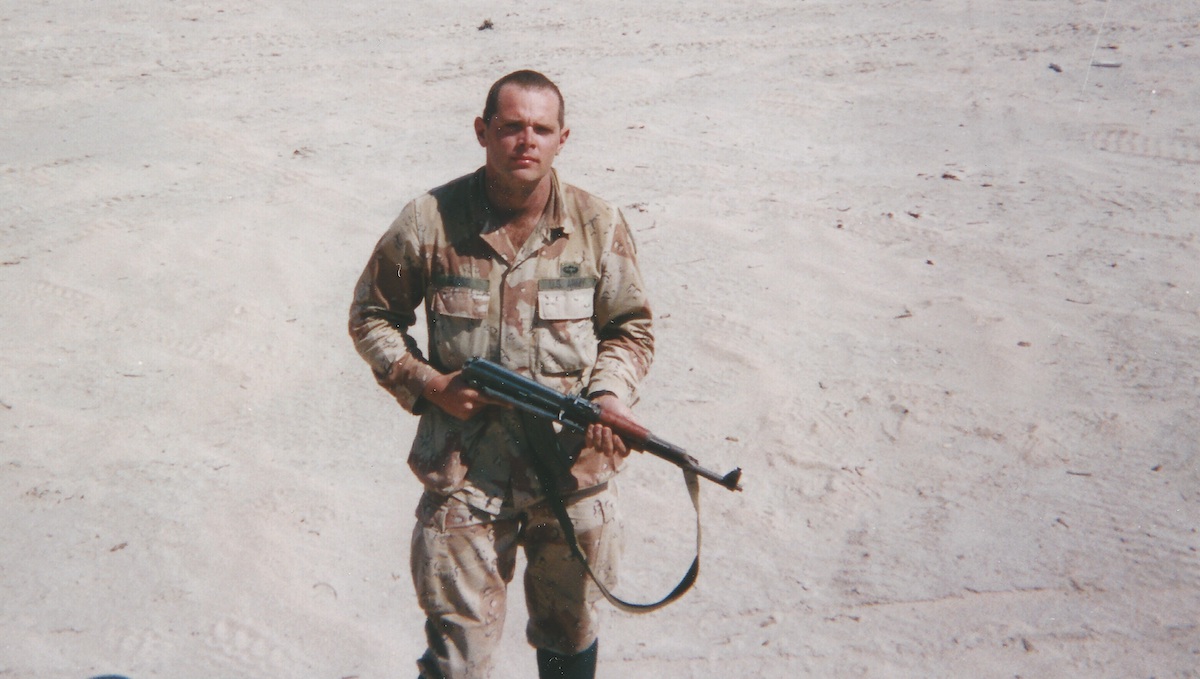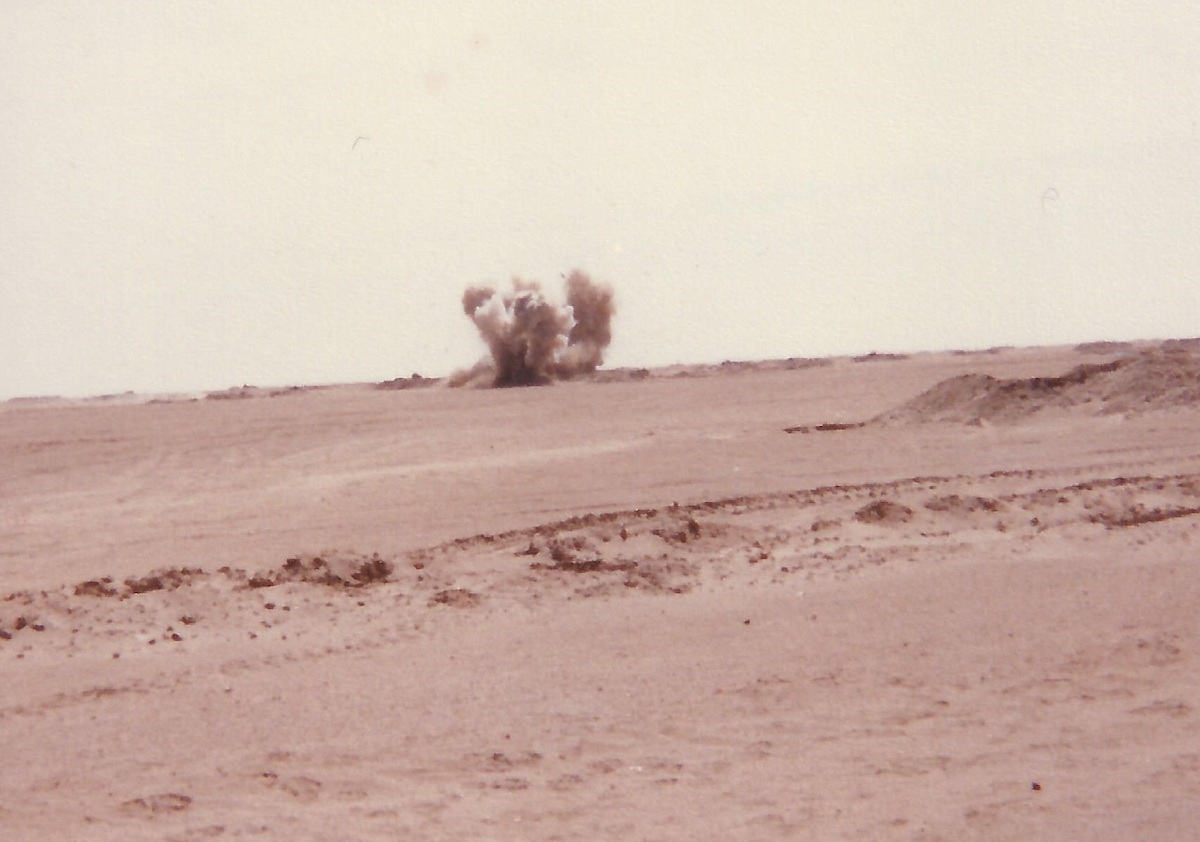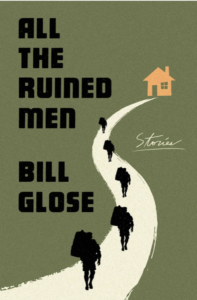
After Combat, Writing the Horrific Stories of War
Bill Glose on Drawing from Real Life
They say write what you know, so it makes sense that novelists’ lives would become templates for creating characters to populate their stories and that their hometowns would morph into settings. Sometimes an individual’s experience merely provides a blackboard onto which a story can be written. Authors such as Jhumpa Lahiri and Tim Gautreaux have woven their cultural heritage into their stories like rich silk. John Grisham and Jonathan Kellerman have mined knowledge from previous careers to create stacks of legal and psychological thrillers.
Other times, a fictional story will rise out of an actual experience. Jon Pineda wrote a memoir, Sleep in Me, about an accident that left Pineda’s teenage sister debilitated and dying. Later, he wrote a novel, Apology, about an accident that leaves another teenage girl debilitated but not dying. His passages in this novel are freighted with a mixture of love and guilt based on his personal experience.
What I know best is life in the military, so I wrote about that: two books of poetry about my Army experiences, Half a Man and Postscript to War. After I got out of the military and wars continued into a new millennium, I wrote a book of linked short stories, All the Ruined Men, about soldiers who have served multiple combat tours struggling to find peace in the civilian world.
My earliest memories are as a child on Air Force bases overseas. My father, a pilot and Vietnam veteran, flew fighter-bombers for the Air Force, and his jets screamed overhead while I pedaled my banana-seat bike wishing I could be him. Eyesight too poor for me to become a pilot, I figured if I couldn’t fly the planes, I would jump out of them instead. So I became a paratrooper in the 82nd Airborne Division. When I was sent off to fight in the Gulf War, my mother later told me it was just the second time she’d ever seen my father cry.
So many war stories are written by writers who’ve forgotten what it’s like to be young and dumb and certain you’ll live forever.
In 1990, my unit was the “line in the sand” that George Bush drew in Saudi Arabia after Iraq invaded Kuwait. We were light troops used to humping everything on our backs, but we were lining up against a mechanized army battle tested from ten years of war with Iran. If Saddam Hussein decided to push his invasion south, there was little we could do to stop him. But his troops halted while ours built up and prepared for an invasion of our own.
 Photo via Bill Glose.
Photo via Bill Glose.
This picture shows me half a lifetime ago, 25, ridiculously young to be leading a 40-man platoon of soldiers, but in charge nonetheless. Most of them were even younger, teenagers barely out of high school. In the photo, I’m deep in Iraq and holding a captured AK-47. A month since I’d showered, so my clothes were salt-rimed and stiff. The next chance I’d get to cut my hair, my scalp would be pulpy as a rotten apple. But that was somewhere in the future, after the ceasefire.
Right here, at this moment, my hard-edged pose was a celebration of survival. My company had just cleared a series of bunker complexes and we’d sustained no casualties. “Clearing” is a misleading term, sounding as if you’re tidying up the yard by cutting back an overgrown hedge. A tiresome process maybe, but easy and safe. Nothing about our task was easy or safe. Clearing a bunker complex is an asshole-puckering endeavor, racing across sand without cover, entering a darkness as disorienting as the black mouth of a cave, turning every corner with finger curled round the trigger of your assault rifle, given one panicked instant to decide if someone you encounter means you harm or wants to surrender.
At the end of the mission, we processed POWs and gathered captured weapons and munitions for engineers to destroy in our wake. My platoon took a break on the side of a dune, eating MREs and bullshitting while we awaited our next orders. About 200 yards away, the engineers prepared to set off C-4 charges. Using a disposable, cardboard camera, I snapped a picture of the first explosion, which failed to completely destroy the weapons cache.
 Photo via Bill Glose.
Photo via Bill Glose.
The engineers pulled the munitions and machine guns into a tighter heap and piled on the C-4. This one blew big. One of the mortar rounds, an eight-foot shell fat as a water heater, hurtled my way. Time seemed to freeze as it wobbled through the air. Seconds stretched long as it swallowed the intervening space. Before I had a chance to duck, it whizzed by my head and careened off another dune. We all stood blinking in stunned shock before one of the corporals said, “Damn, LT, you get a good look at the serial number?” Then we were all laughing at our own stupidity and dumb luck.
That is a true story, but not one fit for the fictional book I’d begun. The characters in All the Ruined Men were veterans of the more recent wars in Iraq and Afghanistan, the ones where soldiers in convoys scanned rooftops for RPGs and roadside litter for IEDs, where searches for insurgents sent them into villages to kick down doors and zip-tie families on kitchen floors.
A soldier following orders and acting without pause doesn’t forget the grisly aftermath. And he doesn’t forgive himself either.
My war ended decades ago, and the battles I fought over barren desert dotted with bunkers and triangle-trenches were nothing like those fought by soldiers a generation later. But the thoughts and actions of these soldiers, their fears and desires, those hadn’t changed from what I knew. So when I wrote one of the early, critical scenes, I used my experience with the mortar round as a way to get into the mindset of soldiers letting down their guard. While clearing the bunker complex, my platoon and I had been fully aware of our surroundings and laser-focused on the mission. But afterwards, we’d relaxed and nearly paid for it with blood. What if, I thought, the same situation happened in Afghanistan, except the soldiers slacking off did not escape unscathed? That became the premise for my opening story, “Dirge,” where two soldiers are on guard duty days before they’re set to rotate back to the States. They’re dreaming of home when an Afghan woman approaches the boom barrier. When they finally warn her to stop, it’s too late, and the bomb strapped to her chest explodes.
Almost all of the stories in All the Ruined Men take place after soldiers exit the Army and struggle to find a sense of normalcy in the civilian world. Again, though our wars were different, this experience was something I had lived and could write about.
In recent months, the horrors of war have been thrust like a sharp stick into the public’s eye. Harrowing images of civilian corpses littering the streets of Bucha and other Ukrainian cities have people duly outraged at Russian war crimes. But even when military units obey the Geneva Convention and take every precaution to avoid civilian casualties, war is gruesome, its toll unimaginable. In the chaos of combat, performing the mission is all that matters, not an individual’s concerns and desires. But a soldier following orders and acting without pause doesn’t forget the grisly aftermath. And he doesn’t forgive himself either. As a veteran, I can attest that the battle continues long after the last shot is fired.
When I came home, I followed my father’s example and kept my combat experiences bottled inside. Stoicism was his fortress. It became mine too. I tried to forget the blood-spattered bunkers and torn-in-half bodies, the children who cowered from us in fear and villagers who begged us not to abandon them when we were called home. I tried to forget but couldn’t. Angry and confrontational, I blew up at any little thing, punching walls, yelling at loved ones. It was a sudden and all-consuming rage that could erupt at any moment. After adrenaline bled out of me and every tensed muscle let go, I would feel like a sleepwalker in my own body, wondering what the hell had just happened.
Paratroopers with fractured psyches were not the only characters whose dilemmas I wanted to explore in my collection. I wanted to shine a light on the dark consequences war brings to family members as well.
When my father flew in Vietnam, I was too young to understand the toll it took on my mother, stuck at home caring for three small children. But when I was 13, my dad was stationed in Iran for a year on a “hardship tour,” meaning it was too dangerous for the family to come along. This was 1978, the year Ayatollah Khomeini overthrew the Shah and the Middle East was thrown into chaos. My mother couldn’t sleep, certain a chaplain accompanied by an Air Force officer would come knocking on the door with the bad news. She took up smoking that year, Virginia Slims smoldering in a bubbled glass ash tray as the television transfixed us all. On the nightly news, rioting students hoisted pictures of Khomeini and chanted their hate while burning effigies of Jimmy Carter.
During my father’s 23 years of service, Vietnam and Iran were his only two hardship tours. I had only served one myself. But many soldiers today with less than ten years’ service have deployed to combat zones multiple times.
One buddy of mine from high school, Brad Lawing, who also roomed with me for one year in college, was commissioned as an Army officer a few years after me. I got out after five years of active duty, but he made a career of it. In 2010 I attended his promotion ceremony and watched Brad’s commanding general pin the silver oak leaf clusters of a lieutenant colonel onto his collar. Brad’s once-brown flattop contained more salt than pepper, but otherwise he resembled the same athletic, bullet-headed poster boy for the Army that he’d always been.
Brad’s wife was a Southern belle from South Carolina with a perfect teeth and long brown hair. During the first eleven years of their marriage, Brad had left Rebekah stranded six times while serving hardship tours—one in Haiti, one in Bosnia, and four wartime deployments in the Middle East. Shortly after his promotion ceremony, he told me that he’d just received orders to go back to Afghanistan for another tour.
Seven hardship tours. It was hard for me to imagine what that could do to someone, especially with five of them being wartime deployments in such short succession. But imagine I did, creating a character based on Brad, a family man who constantly leaves his wife and children at home to serve his country. Brad is now retired from the military and has maintained a happy, wholesome family life. However, just as I’d done with the daydreaming soldiers at the boom barrier, I asked the question, “What if?” What if a soldier with a young, pregnant wife continually deploys and finds himself becoming a stranger to his own child? What if he starts to hunger more for the violence of war than the tender comforts of home? Creating a character named Brendan Mueller, I portrayed the slow fracturing of his family spread across several stories. In “Dirge,” instead of spending time with his wife, Sophia, and their teething baby, Chrissie, he goes to bars with his buddies and brawls with little provocation. In “Sacrifices,” which takes place when Chrissie is three and Brendan is considering whether or not to re-up for another four years of service.
Sophia says I spoil Chrissie, but what choice do I have. Absent half her life, I have to work twice as hard to make the time count. A paratrooper in the 82nd Airborne Division, I go where the Army sends me. Last deployment was eleven months in Iraq. Before that was six in Afghanistan. Both times, my first week home, I was a stranger to Chrissie. When I’m gone, I live in hallway pictures and on the computer screen as her mother Skypes. When I’m finally there in the flesh, it’s hard for her young mind to connect the one-dimensional image with the three-dimensional reality. My face might wear the same brown hair buzzed high-and-tight and the same scar bisecting my left eyebrow, but it still seems foreign, it still seems wrong. Her tiny body will squirm when I hold it against my wiry frame, her own arms squeezing George in a death grip as she struggles to break free. Months later, after she’d used to me being around, I’m off again. Then it’s my leg she’s clutching as she wails, Don’t go, don’t go, George tossed aside in a heap.
In “Penultimate Dad,” Chrissie has become a surly fifteen-year-old and Sophia is about to get remarried to an Air Force Pilot. While the new couple honeymoons, Chrissie is supposed to live with Brendan for a week. Brendan hasn’t seen her in three years, and he’s determined to make this a memorable week. Chrissie, however, makes it clear she wants nothing to do with her father, so he figures out something they could do together.
I’m going to teach you to defend yourself, he says now. You might even like it.
Chrissie laughs. That’s how you want to spend this week? In a cage match?
If you’d rather, you can mow the lawn and clean the attic and—
No, no. Fighting’s good.
Brendan agrees. Fighting is good. All through school, his quick temper had gotten him into scuffles. He’d learned through trial and error how to throw and take a punch, paying for knowledge with split lips and bloodied knuckles. The Army took his unrefined talent as a scrapper and taught him the science of hand-to-hand combat. Drill instructors at Fort Benning showed him how to aim for soft spots and vital organs, how to dislocate a knee and snap a neck. Lessons he could now pass along to his daughter.
Today, it’s hard for me to imagine acting as irresponsibly as Brendan. But back when I was his age, I was always doing stupid shit and so was everyone else I knew. So many war stories are written by writers who’ve forgotten what it’s like to be young and dumb and certain you’ll live forever. It’s easy to lose sight of the passions that once moved us, the wanderlust of our hormone-infused minds. That’s why it’s important for me to look back on that picture of me in the desert when I’m writing about these soldiers. To remember how it had really been for me—the hardships, hopeful dreams, and trivial details. To borrow just enough from my own life to make these characters real.
__________________________________

All the Ruined Men: Stories by Bill Glose is available via St. Martin’s Press.
Bill Glose
Bill Glose is a combat veteran and former paratrooper. He is the author of several books of poetry, including Postscript to War and Virginia Walkabout. His magazine articles, stories, poems, and essays have appeared in numerous publications, including The Missouri Review, The Sun, Narrative Magazine, and The Writer. Glose received the F. Scott Fitzgerald Short Story Award, the Robert Bausch Fiction Award, and the Dateline Award for Excellence in Journalism. Glose was named the Daily Press Poet Laureate in 2011 and featured by NPR on The Writer’s Almanac in 2017.












